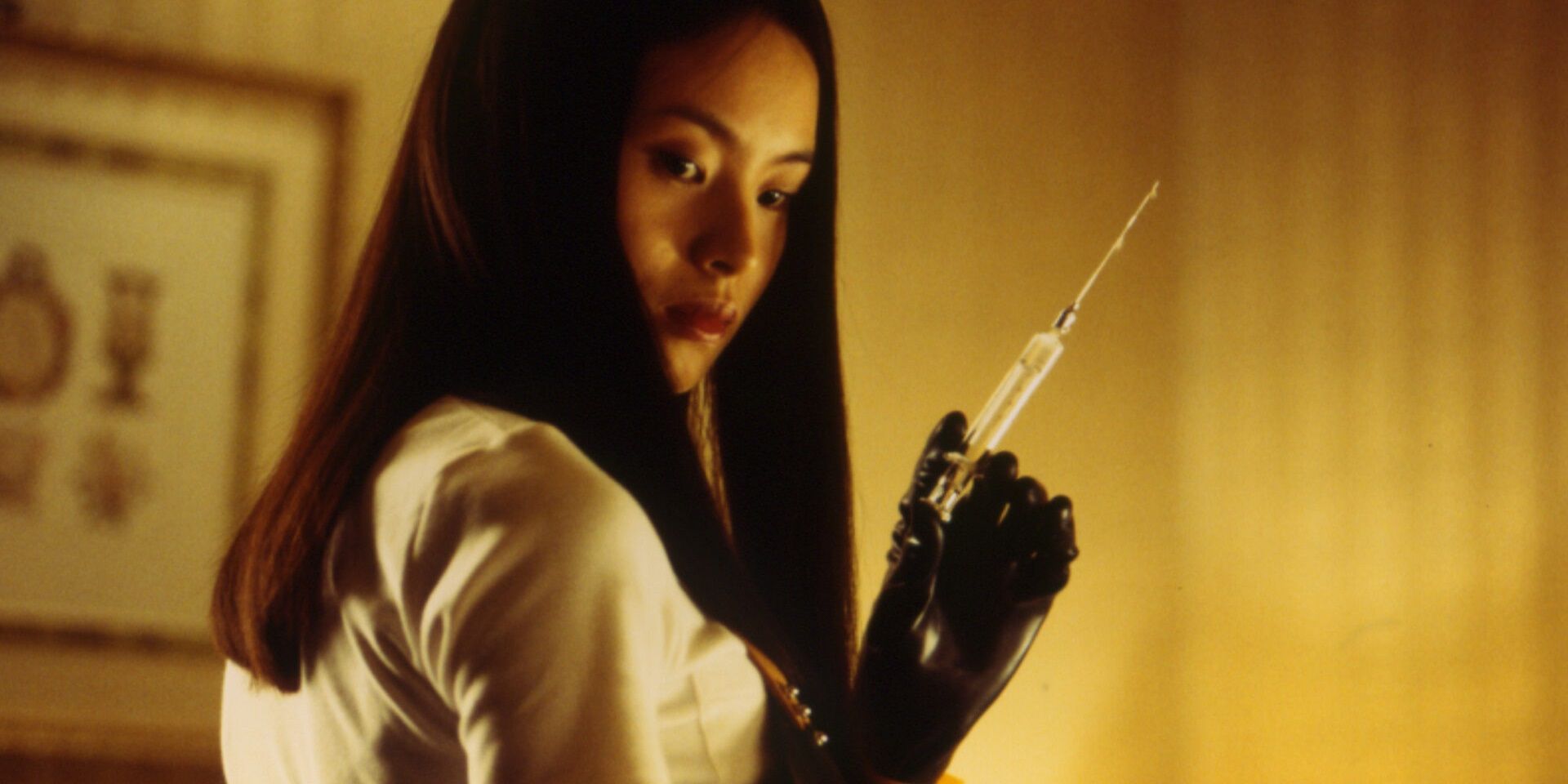
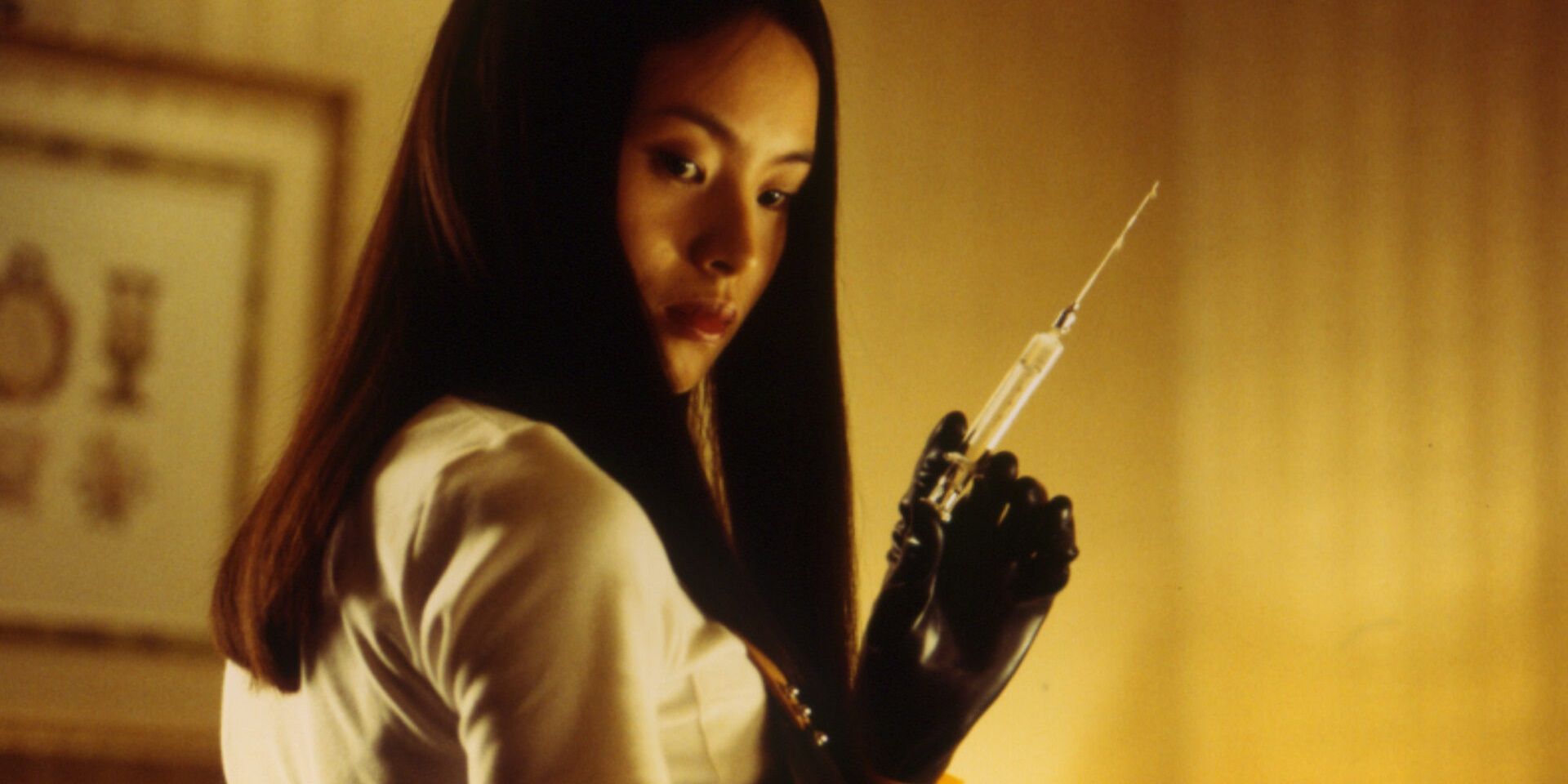
Horror filmmakers usually want to start their movie with a big scare to get the audience hooked from the beginning. Jaws opens with Chrissie Watkins being devoured by a giant shark in the middle of the night. Halloween opens with a six-year-old Michael Myers killing his big sister. It opens with Georgie being eaten alive by a sewer-dwelling Pennywise.
These openings can work beautifully, but horror movies with more patient pacing can be even more effective. The longer a filmmaker forces their audience to wait for a payoff, the greater that payoff will be (if the payoff is worth it). Alfred Hitchcock waits until the midpoint of Psycho to turn a noir about embezzlement into a horror movie about murder. Ridley Scott doesn’t introduce the titular star-beast until the midpoint of Alien. One movie that pulled off this kind of genre bait-and-switch masterfully is Takashi Miike’s Audition.
RELATED: What Makes The Paranoia Of Rosemary's Baby So Effective
Bernard Herrmann’s tense string orchestrations in Psycho and Jerry Goldsmith’s otherworldly soundscape in Alien (and the appearance of the facehugger) tell audiences that they’re watching a horror movie, even if the first big scare doesn’t arrive until the midpoint. What makes Audition so subversive is that there’s truly no suggestion that the audience is watching a horror movie until about an hour into the runtime. The story is initially set up as a romantic melodrama about a widower looking for love at his son’s insistence. It doesn’t rear its head as a horror movie until halfway through when it takes a very, very dark turn. From there, it’s an edge-of-your-seat thrill-ride.
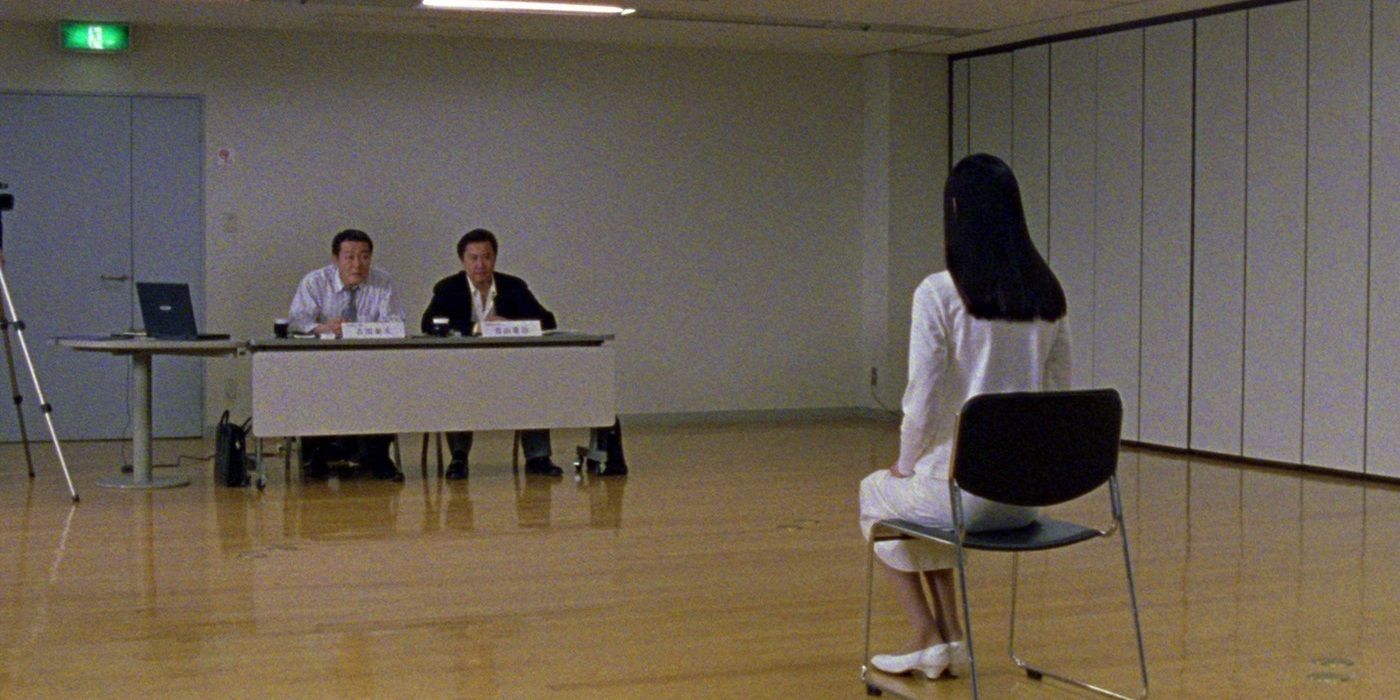
Miike is a controversial figure within Japanese cinema, but a widely celebrated visionary in world cinema. His cinematic portraits of gruesome violence and sexual perversions are challenging to say the least, but movies like Ichi the Killer and Sukiyaki Western Django are uniquely bizarre gems that captured audiences on a global scale. Audition is widely regarded to be the director’s finest work, and one of the greatest horror movies ever made.
Adapted from the novel of the same name by Ryū Murakami, Audition tells the story of a widower named Aoyama (Ryo Ishibashi) whose son tells him he should get back out on the dating scene and look for new love. Aoyama enlists the help of his movie producer friend and they set up a casting call under the guise of a new film project so that he can find his soulmate. The interview questions are supposedly related to the role, but it’s really so Aoyama can get to know them and identify his ideal mate. If it didn’t have Miike’s sharp framing and editing, it could be a Lifetime movie.
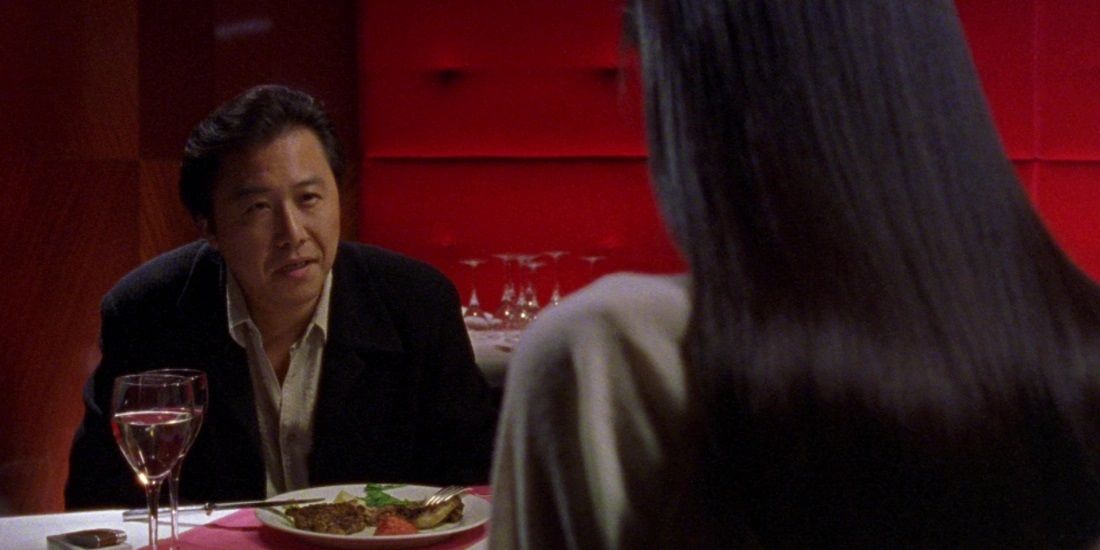
Aoyama falls head over heels for a young woman named Asami (Eihi Shiina), who returns the same level of affection. It’s so perfect that it seems like a fairy tale. Miike drops a hint that she isn’t what she seems when her references turn out to be fake, but he’s too smitten to care and pursues a relationship with her anyway. The first indication that it’s a horror movie arrives when Aoyama excitedly calls Asami and the audience sees the call from her point of view.
For four whole days since the audition, Asami has been sitting in the exact same spot in her empty apartment, waiting for the phone to ring. When it finally rings, she pretends she wasn’t expecting Aoyama to call. This mysterious obsession is already disturbing enough, but Miike adds an unforgettably unsettling cherry on top: somebody trapped in a sack, presumably Asami’s ex-boyfriend, is writhing around the apartment in agony, unable to get out.
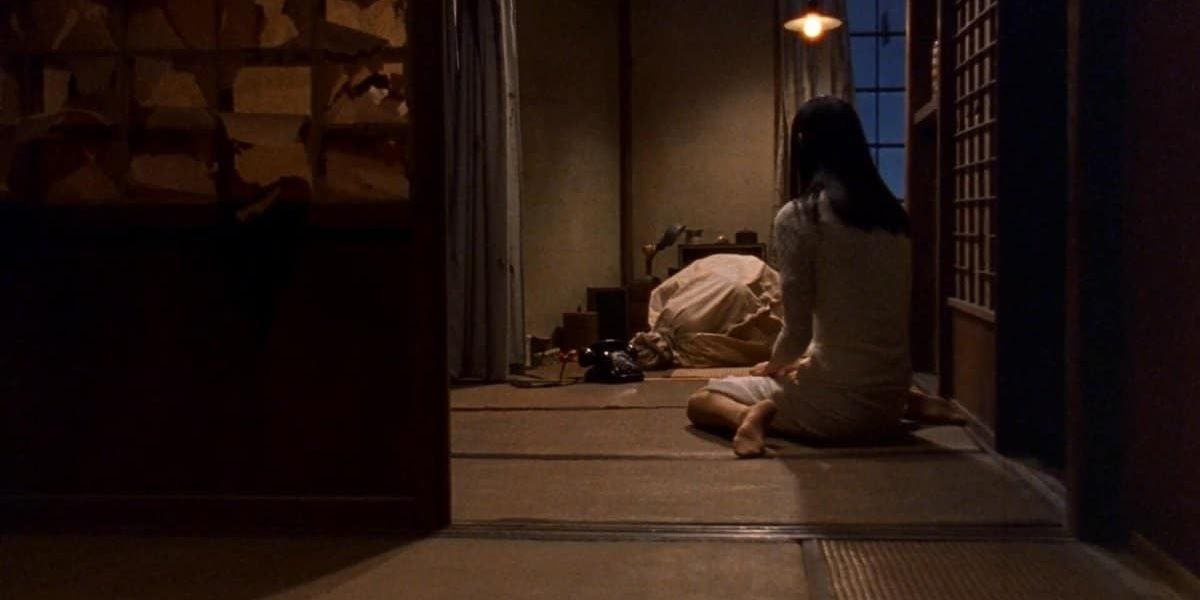
Obviously, Asami isn’t as sweet as she initially appeared. As her dark backstory begins to unfold, Aoyama comes to the startling realization that he’s already in too deep and she’s dangerously fixated on him. The genius of the early setup is that it makes it somewhat difficult to sympathize with Aoyama. He finds out that he’s been deceived by Asami, but he deceived her first. He’s being manipulated into a relationship by the very person he manipulated into a relationship. This feeds into the movie’s themes of overturning the patriarchy, at a time when women were becoming more independent in Japanese culture, and it leads to the movie’s infamous finale.
If a horror filmmaker has built up to their climactic terror effectively enough, they can really take their time dragging out the payoff. In Tobe Hooper’s The Texas Chain Saw Massacre, Leatherface picks off Sally’s friends in the first act, then chases her through the woods in the dark in the second. Once he’s captured her and her worst fears come to fruition in the third-act dinner scene, Hooper stretches the rubber band as far as it’ll go, realizing every possible disturbing or gruesome thing that could happen at that dinner table. For an unbroken 20-minute chunk of Hooper’s 1974 masterpiece, Sally is bound to a chair and forced to enjoy a meal of raw human flesh surrounded by a murderous family all wearing clothes made of human skin. Since Hooper handled the build-up so well, the rubber band holds through the whole stomach-churning dinner sequence.
The same thing happens in Audition when Aoyama finally realizes the danger he’s in and Asami’s sinister plan comes together. Miike drags out the climactic terror for so long that it almost becomes unbearable. The melodramatic build-up may seem slow at the time, but it’s worth it for the payoff.
MORE: This Japanese Horror Movie Is A Psychedelic Nightmare



